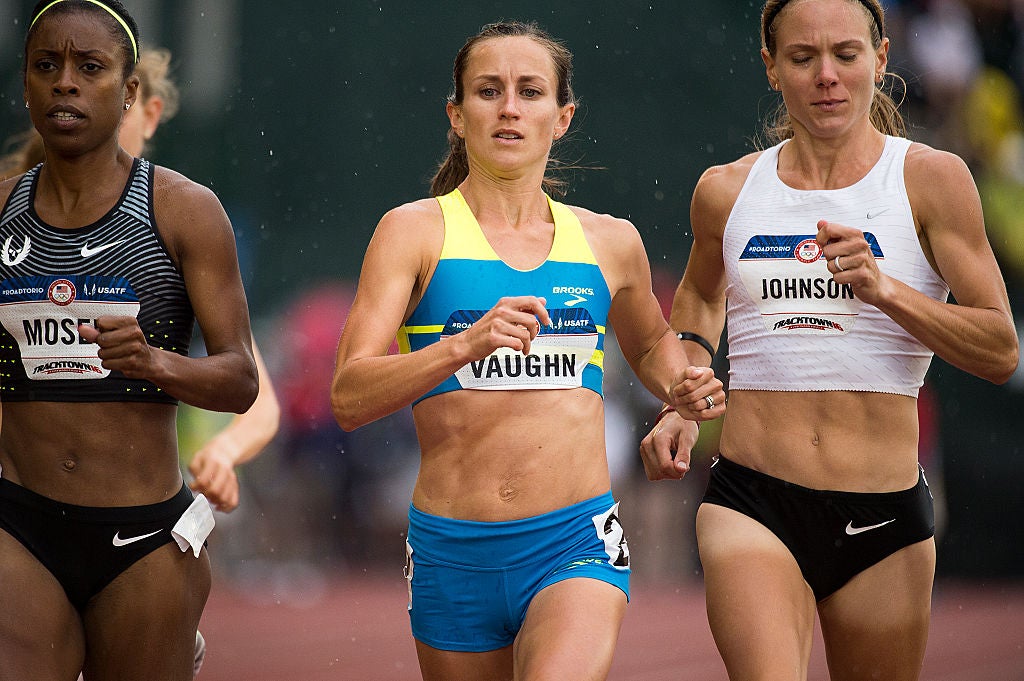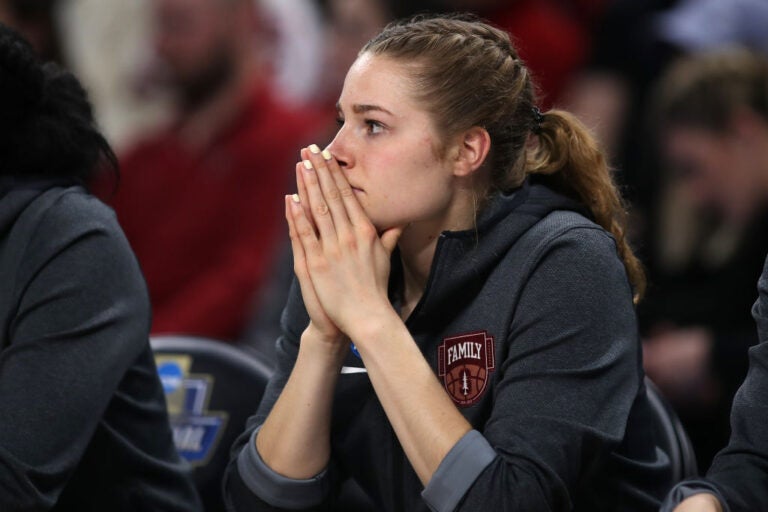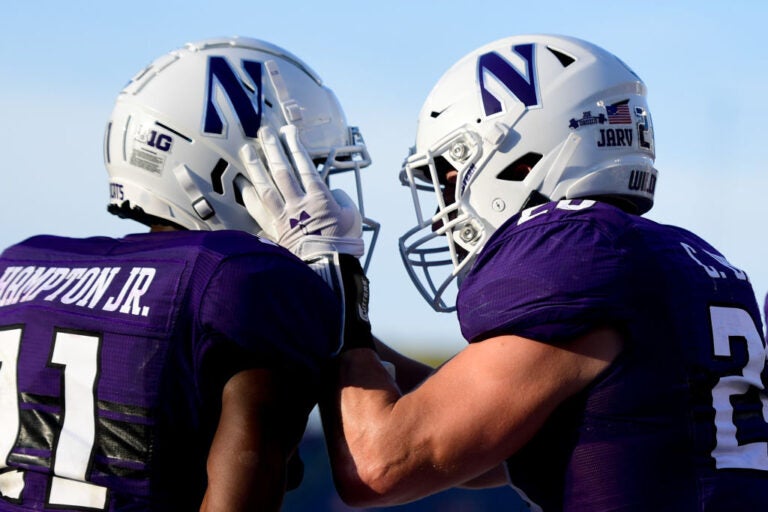The Demise of Roe v. Wade Is a Threat to College Sport
Why this matters
Bodily autonomy once afforded to college athletes where they live and compete is gone after the Supreme Court's reversal on Roe v. Wade abortion protections, elevating the role of universities and college sports organizers to educate and protect athletes.
When Sara Vaughn became a parent in 2006 while she was a runner for the University of Colorado, she found herself back in class five days after giving birth, baby in tow.
When Crissy Perham’s birth control failed and she became pregnant in 1989 while she was on the swim team for the University of Arizona, she did not share her decision to have an abortion with anyone in the school’s atheltic department.
Vaughn and Perham each went on to athletic success: Vaughn is one of the world’s fastest marathoners, and Perham won a college national championship and three Olympic medals. Both of their pregnancies were unplanned, like nearly half of American pregnancies each year. And both women share something now denied to college athletes and anyone else who gets pregnant in at least 13 U.S. states: the right to make the choice that they knew was best for them.
In the wake of the Supreme Court’s recent decision in Dobbs v. Jackson Women's Health Organization to overturn Roe v. Wade and reverse decades of precedent guaranteeing abortion rights, many college athletes are not only losing the right to choose but also potentially losing the access to higher education that comes with it.
We talk about puberty as being a dropout point in girls’ sporting lives. Pregnancy is also a dropout point in girls’ and women’s education, which in turn can harm their career ambitions and earning potential. When young women are not allowed to choose if, when, and how they become mothers, they are being set up to make needlessly difficult decisions, to struggle unnecessarily in their day-to-day lives, and even to fail as students and athletes.
This is not an abstract point. Nearly half of all community college students – women and men – experience an unplanned pregnancy while in school. Of those who became pregnant and had children, 61 percent did not complete their degrees. That doesn’t surprise Vaughn. While a student parent at Colorado, she connected with a Childcare Task Force at the school as well as sociology professors who were investigating student parents’ educational outcomes and degree completion.
In that study, Vaughn says, “nearly all of the women dropped out and none of the men did. And of the women who had taken a semester off and did come back, even with this group less than 20 percent finished their degree in their lifetime.”
Related: What Happens When An Athlete Takes ‘The Pill’?
Vaughn is an exception. After giving birth to her daughter, Kiki, she graduated from Colorado with degrees in psychology and Spanish. But that wasn’t easy. She describes her life during that time as “crisis mode.” A night owl, she took evening classes and stayed up studying until 1 or 2 in the morning. Brent Vaughn, her partner and future husband, got up with the baby and attended morning classes. Like Sara, Brent was a runner for the Buffaloes; like Sara, he fit in training when he could. Because the couple couldn’t afford the subsidized daycare provided by the school, Brent played online poker to pay for a babysitter twice a week, which allowed both of them to attend practice on hard workout days.
“We were burning the candle at both ends,” Sara says. “The only thing that got me through it without having a breakdown was knowing it was short-term.”
Looking back at Vaughn’s performances, you can pinpoint the exact moment when her classes were done for the year and she could focus only on parenting and running. “Once school got out, I was [running personal records] every time I raced, every week for four races in a row,” she says. Two months after Kiki’s first birthday, Vaughn earned All-American honors at the National Collegiate Athletic Association cross country national championships. She competed in the 2017 World Championships at 1,500 meters and subsequently moved up in distance with even greater success. She made her marathon debut this past January, and she remains a world-class runner.
Vaughn was able to choose the path that made the most sense for her goals, values, and health. So was Perham, who in 1989 understood she was not ready to become a mother. She saw her abortion as a “second chance at life,” and afterward she recommited herself to acheving her goals in the pool and the classroom. Perham’s grades improved; she was faster in the water than ever. She earned her first NCAA national championship in the 100-yard butterfly, something she says never would have happened had she taken a year off to have a child.
In an amicus brief in Dobbs signed by more than 500 athletes, Perham shared her abortion story, writing that the NCAA championship race “changed the course of my life. It opened up so many opportunities, and a year later I made the Olympic team.” Serving as co-captain of the 1992 U.S. Olympic swim team, Perham won three medals – two golds and a silver – at the Barcelona Games. She decided to share her story because “there are so many of us out there.”
College athletic departments have long struggled to support athletes dealing with pregnancies. When Vaughn was pregnant and was a new mom, she says, “it felt like ‘make it up as you go’” whenever she asked people in Colorado’s athletic department for help. “No one knew what to do,” she said. In the post-Roe era, information and support will be needed more than ever – and likely more difficult to provide.
Coaches who used to be involved in their athletes’ pregnancy prevention decision-making because of their ideas about optimizing athletic performance will need to defer to medical experts, who themselves will need to have broader reproductive health and pregnancy prevention conversations with athletes. Meanwhile, administrators should assume that most athletes will not come to them to disclose a pregnancy when they decide to seek an abortion.
Even if athletic department staff are not currently mandatory reporters to police, in some states they very well could be forced into that role. This change has already taken effect across the country, with President Joe Biden joining calls from legislators in Washington asking the U.S. Department of Health and Human Services to consider strengthening HIPAA, the Health Insurance Portability and Accountability Act, which protects medical patients’ privacy. Beyond fearing criminal prosecution, an athlete could worry that her abortion may become public knowledge should she disclose to a public employee at a state university.
This all serves to underscore the necessity of education, communication, and action by schools and athletic departments. This programming can come through Title IX training. First, athletic administrators need to clearly communicate – not to mention understand – that pregnancy, childbirth, and postpartum recovery are protected by Title IX, a federal law which mandates equal opportunity in education on the basis of gender. A school also cannot discriminate against a student for her medical and reproductive healthcare decisions, including abortion. (NCAA rules now comply with federal law to include athletic scholarship protections for “childbirth, termination of pregnancy, or recovery therefrom.”)
Next, athletes who become parents need childcare. Have states with full or near-total bans on abortions – like Alabama and Kentucky – allocated additional money to subsidize said care? Have they given extra money to their state schools and powerhouse athletic programs for the same?
When Sara Vaughn had learned from the Task Force team that no fund or scholarship to support parent college students’ childcare needs existed at the University of Colorado, she and Brent began raising money to establish one. “We realized we were in a fortunate position, as scholarship athletes,” Sara says. “Though our scholarships did not cover childcare, we had housing stipends and our education paid for to allow us to stay in school.”
The Vaughns’ fund has supported four parents for four years in a row and last year covered three parents’ childcare costs. Moving forward, Sara’s dream is to establish a national nonprofit with the same mission. Other existing national nonprofits – the NCAA and its member conferences – earn billions of dollars annually from college sports. Perhaps they could pitch in or establish this infrastructure.
Asked what advice she would give to athletic departments and coaches navigating a post-Roe landscape, Perham says the most essential thing is to “remove your personal opinion. Your job is to give the most amount of knowledge and empowerment to these young adults so that they can make choices for themselves.”
Along those lines, Perham says more education is needed: sex education, contraception and pregnancy prevention education, pregnancy and postpartum education, and young parenting education. Moreover, she says, this education should be made available for all athletes – women and men. “Maybe we would have less abortions if we understood birth control better,” she adds, noting that parents and K-12 schools in many states are not teaching this and that all students, not just athletes, come to college potentially misinformed.
What athletes don’t need, Perham says, is shame and stigma. On this front, the NCAA’s recent silence on Dobbs and lack of leadership in supporting bodily autonomy, the right to make personal healthcare decisions, and women’s educational civil rights isn’t helping. Previously, the association moved its championships out of South Carolina because of the Confederate flag being flown on the grounds of the state capitol and out of North Carolina because of a discriminatory anti-LGBT law. This academic year, however, NCAA championships in cross country and track and field are scheduled to take place in Oklahoma and Texas, two states with full abortion bans; moreover, the assocation has yet to issue a public statement on a severely restrictive abortion law in Indiana, where the NCAA’s headquarters are located.
The Supreme Court released the Dobbs opinion the morning after the 50th anniversary of Title IX, a day marked by celebrations across the country. For many women, the whiplash felt cruel. But there might just be opportunity in the cruelty. In the 1970s, advocates for women understood that Title IX and abortion rights were inextricably linked. Today, the political energy created by Dobbs could result in a federal law protecting bodily autonomy and personal medical and reproductive health care decisions.
In the meantime, students’ abortion rights should be protected under Title IX. The right to choose abortion keeps girls and women in school and, in the case of athletes, school sports. And that’s not the only connection between athletics and reproductive justice. For women athletes, sports are a place to deepen our understanding of our own bodies, of the power and joy they produce. As Perham says, “our bodies are the tools of our craft.” Women athletes understand how our sports tools can lead to inclusion and liberation, and policing and control by others can take those things away.
At the deepest level, this is why Perham and other athletes such as Megan Rapinoe have taken on leadership roles in advocating for abortion rights. It’s why sports organizations that serve women athletes must step up and lead, too. College women, like all women, deserve the right to choose. If they choose abortion, they deserve a life without shame or stigma. If they choose motherhood, they deserve university support through pregnancy, childbirth, and postpartum recovery, along with sufficient resources for childcare.
To conclude her statement in the athletes’ amicus brief, Perham wrote, “Women know what’s best for our own bodies and lives, and our autonomy needs to be respected.” Following Dobbs, it also needs to be protected.
Monthly Issue
Access & Opportunity in Sport
The physical and social benefits of athletic competition are clear, but across the globe, many are still unable to enjoy them.
Can sport evolve to be more inclusive and adapt to the bodies, minds and circumstances of everyone who wants to play?




